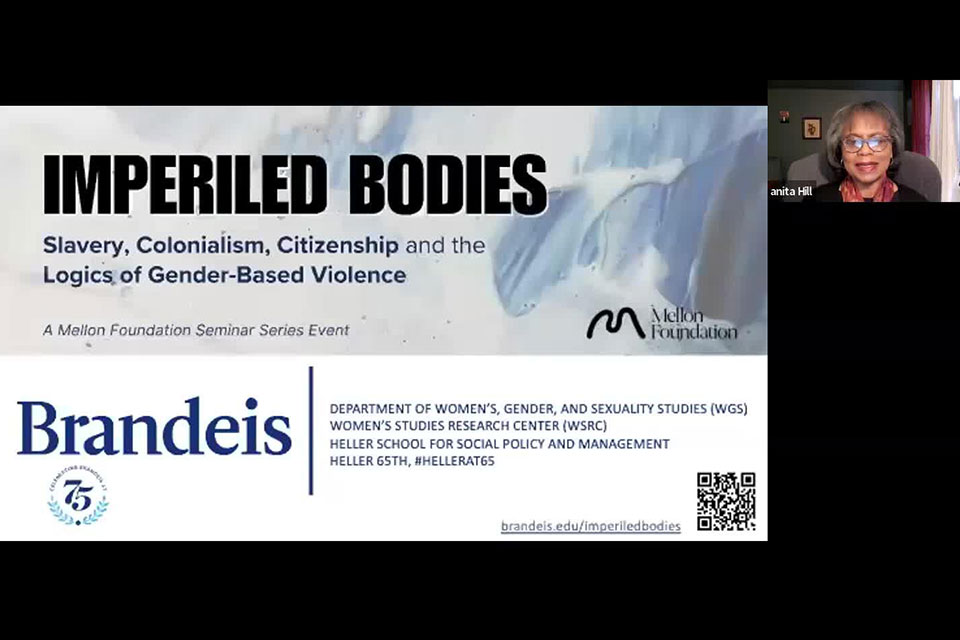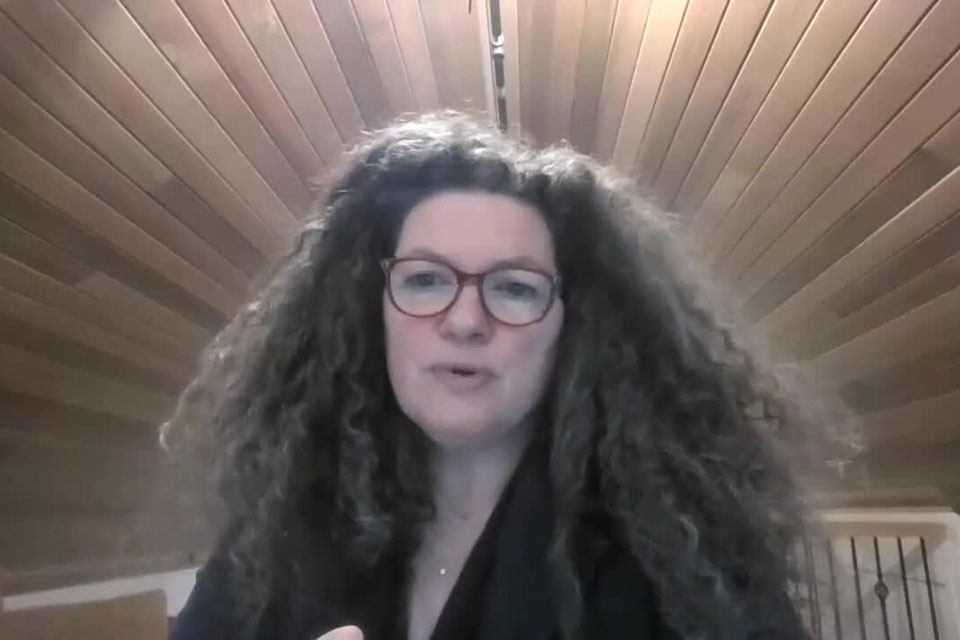“An Unshamed Claim to Beauty in the Face of Invisibility”: Crip Justice and Sins Invalid
On March 26, 2024, the Mellon Sawyer Seminar hosted the session “Crip Justice: Gender, Disability, and Sexual Violence,” organized and moderated by Ilana Szobel (Joseph H. and Belle R. Braun Professor of Modern Hebrew Literature, Brandeis University). Featuring disability justice activists and artists Patty Berne (co-founder, executive and artistic director of Sins Invalid) and Maria Palacios (poet, author, activist, and performance artist), the session condemned patterns of ableist sexual violence against people with disabilities while centering community-based strategies for cultivating what Sins Invalid calls “an unshamed claim to beauty in the face of invisibility.”
Berne began by identifying sexual violence as one tool to regulate people’s bodies and behavior in an ableist political and economical system reliant on profit and punishment. They defined ableism, per T. A. Lewis, as “[a] system of assigning value to people's bodies and minds based on societally constructed ideas of normalcy, productivity, desirability, intelligence, excellence, and fitness. These constructed ideas are deeply rooted in eugenics, anti-Blackness, misogyny, colonialism, imperialism, and capitalism.” Under this wide-ranging ableist system, violences such as forced sterilization, coerced DNRs, and euthanasia proliferate under a cloak of silence, shame, and invisibility, exacerbated by a medical model that does “not support [people with disabilities] being seen as whole and complete humans.”
Panelists then turned to a recording of Maria Palacios’s Sins Invalid performance piece, “Vagina Manifesto” (2009), in which she personifies her vagina to reflect on gender, desire, and sexuality and to dismantle pervasive “anti-vagina propaganda” (“Vagina Manifesto” 1:03) that devalues women and girls. Imagining a “ceremony of rebirth when across oceans and nations the arrival of a daughter, especially a disabled daughter, is no longer mourned but celebrated” (“Vagina Manifesto” 3:20-3:34), Palacios modeled her approach to art as a powerful tool for personal and community reflection. Art is, as Palacios put it, “a way to fight back, … to leave a mark, to create a legacy, [and] to empower people.” It provides a site where people can organize and affirm that “we deserve to be here.”
Posted by Carmel Ohman, March 28, 2024
This event was part of the year-long Mellon Sawyer Seminar, “Imperiled Bodies: Slavery, Colonialism, Citizenship and the Logics of Gender-Based Violence” led by PI Anita Hill, co-PI Harleen Singh, and ChaeRan Freeze at Brandeis University. Brandeis University sponsors and resources include the Heller School for Social Policy and Management, the Department of Women’s, Gender, and Sexuality Studies, the Women’s Studies Research Center, the Mandel Center for the Humanities, the Hadassah Brandeis Institute, the Feminist Sexual Ethics Project, the Rose Art Museum, the Kniznick Art Gallery, the Gender and Sexuality Center, and the Prevention, Advocacy, and Resource Center. This seminar is among the signature events of the Heller 65th Anniversary year, Celebrating Knowledge Advancing Social Justice #Hellerat65.



